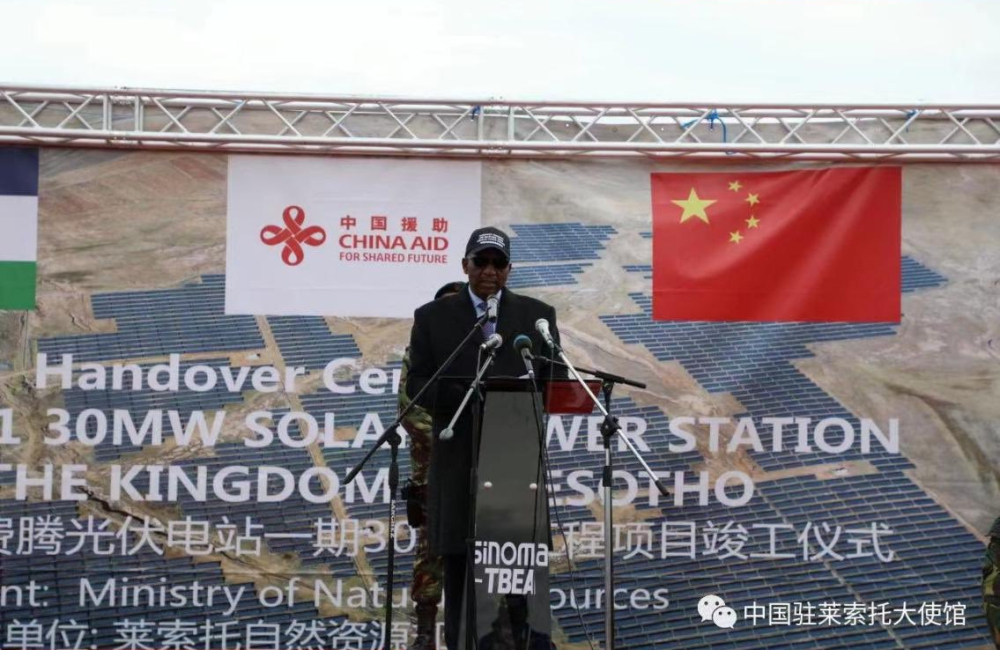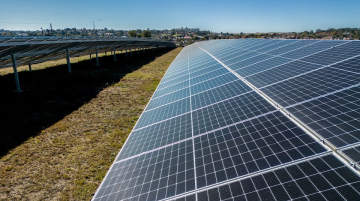
Some 71 kilometers south of Lesotho’s capital Maseru, the new Mafeteng Solar Power Plant Project generates some 30MW of electricity that could easily power 30,000 homes running household appliances like a fridge, a TV, an electric cooker and a number of lights while also supporting some other activities requiring electricity like phone charging and ironing.
The completion of the first phase of the project is a welcome relief for Lesotho which imports almost half of its 150MW peak power demand. This power plant means that this small landlocked country encircled by South Africa can now substitute costly power imports from Mozambique.
Financed by the Exim Bank of China, the project highlights China’s new “small is beautiful” philosophy for infrastructure development in Africa and other developing regions where they are pulling back from financing the large mega projects that they did a decade ago in favor of smaller initiatives that are more manageable in terms of debt sustainability.
With the project’s first phase already feeding power to the national grid, it is helping Lesotho optimize its energy structure by increasing its electricity generation capacity since the Muela hydropower plant cannot meet the growing demand for electricity.
This shortfall in electricity generation has led to most people, especially in rural areas relying on biomass such as wood and other solid matter for fuel to cook and heat. To address this challenge, the government is looking to increase the electricity access rate for its population.
Players from the private sector are also stepping in to plug the electricity deficit in Lesotho.
Some 200 kilometers from Mafeteng, a community in Thaba-Tseka District has turned to solar for reliable electricity to charge their phones and light their homes. They are using solar-powered charging kiosks which are run by rural entrepreneurs in Africa’s coldest country. Others are connected to off-grid electricity supplied by a solar mini-grid system.
WHY IS THIS IMPORTANT?
A pursuit of reliable power in Lesotho creates room for Chinese companies to take advantage of available opportunities in the country’s energy sector. Demand for energy remains high since more than 30% of households do not have electricity.
The Mafeteng Solar Power Project is one of the “beautiful” projects by the Chinese and companies looking at opportunities in the power sector can find them in the Lesotho National Policy 2015-2025 which seeks to invest in renewable energy to meet the country’s growing demand.
SUGGESTED READING:
- LSP Construction: Mafeteng Solar Farm
- China Global South Project: If You Lead a Developing Country and Want to Borrow Money From China, Then Listen to This Podcast











